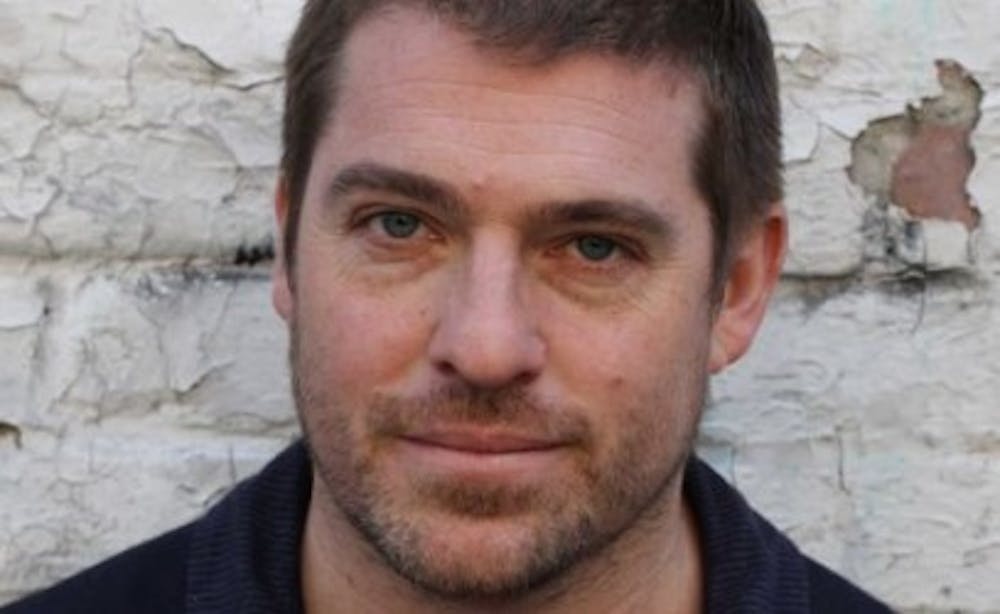Each year the Virginia Festival of the Book brings authors to Charlottesville to speak about their past work and recent publications. Curator and author, Nato Thompson, spoke about art and activism, in conjunction with his new book: "Seeing Power: Art and Activism in the 21st Century" on Wednesday.
After Thompson spoke, he devoted an hour to answering questions from the two moderators, University Assistant Prof. Christa Robbins and Matthew Slaats, executive director of the Bridge PAI — a "progressive arts initiative" in Charlottesville — and from the audience.
Before Thompson took the stage, Robbins introduced Thompson, noting that his book is an excellent tool for undergraduate readers. She elaborated on this, commenting that his "prose [is] exceedingly clear and accessible."
His talk took this same approach as he started it with the weather, saying that even though it was "crazy pretty outside… [we would] bring our own sunshine in here," and that "we can have fun together." To prove it, he opened with a video interview of the first people arrested at a protest of MTV. A younger Thompson, from his graduate school days, was front and center in the video as the first person arrested.
In an interview, when asked whether his down-to-earth approach is effective in his book, Robbins said, "he's not an academic, he's an activist and he's a curator." She defined him more as a "public intellectual" who is trying to reach "as broad an audience as possible… [and] open up the art world."
His book is tailored similarly to his talk in order to maintain accessibility. His book does not have a long list of references at the end, and although he mentioned other theories, he tailored his talk to his own observations of trends in art, culture and the crossroads between art and activism.
He made many assertions that stemmed from his experience working as chief curator for Creative Time — an organization that commissions and presents creative art projects around the world. Instead of focusing on defining terms like "art," he thinks about culture. While many say they know little about art, almost everyone is "savvy" about culture.
A few of the themes he touched on were the ideas of "co-opting revolutions," "social capital," didactic versus poetic art and "occupying space." In terms of co-opting revolutions, he showed Taco Bell commercials that mimic the revolutionary Che Guevara, referenced Punk's commodification of revolution, like on Hot Topic merchandise and nominated Hipsters as the only movement with no self identifying members. Regarding Hipsters, he blames the "tools of embarrassment" for being too powerful.
"They know they'll be outdated eventually so never identify with anything ever," Thompson said.
In terms of "social capital," he spoke about people's motivation in getting involved. Thompson said that often value is no longer created by salary, but by opportunity and the ability to put things on a resume.
Talking about art, he brought in outside reviews of Creative Time projects and found there is a constant struggle between people who want art to be didactic and those who want it to be poetic. Thompson found many activists think activist art is too abstract and poetic, but art critics dislike the direct nature of this art. He, however, disagrees with this.
"At times, it's okay to be pedantically clear," Thompson said.
Finally, he spoke about spaces and institutions. Thompson maintained museums can be especially susceptible to public opinions and protests because they are public spaces, and people should hold them accountable as institutions. However, he also extended his definition of spaces beyond museums, thinking of all the world not as a stage, but as a gallery.
While Thompson’s talk appeared like a casual conversation, his personality and voice shined through, generating interest for his book and his philosophy.







